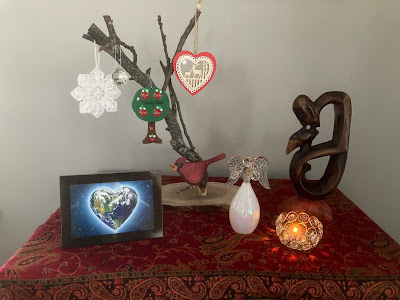When I became the grandmother of a child on the autism spectrum I learned that "If you've met one person with autism, you've met one person with autism." This oft-repeated quote is attributed to Dr. Stephen Shore, an autism advocate who is on the spectrum himself. It is important to be aware that we can't lump all autistic people into the same category. But I would like to add: if you have met one human being, you have met one unique human being."
Every human being is a distinct individual unlike any other. And yet, we humans love to lump people together using stereotypes, labels, and typecasting to dehumanize those outside of our own sphere.
One example of typecasting is the way many White Americans see African Americans as if they were all alike and all inferior human beings. I grew up in a small Long Island community where there was only one Black family. This family included a girl my age who I remember coming to my house to play and who I invited to my house for birthday parties. I don't remember treating her any differently than I did my other friends who were Jewish, Catholic, Mormon, and Protestant.
One of my best friends in college was an African American woman whose Black friends called her an "Oreo." I don't know if this label hurt her feelings, but it did imply that these friends did not acknowledge the individual personality of this woman who just happened to have some interests in common with her White housemates.
After I graduated from college I moved to Washington, D.C. where I worked at an accounting school. Many of the students had come from Nigeria. One of these Nigerian men asked me if I'd like to go with him to a park on a Saturday afternoon. I don't recall what park it was because we never got there. When he picked me up he said he'd decided to take me to his apartment instead. If I hadn't been such a naive, young woman, I would have told him to let me out of the car immediately. I didn't, and I went to his apartment where we danced and he pressed an unwanted kiss on my lips. I told him I wanted to go home and he said, "Before I take you home I want you to do something for me." I asked what that was and he said, "Come on, we aren't children." Oh dear, he had finally broken through my naivety. "Take me home now!" I insisted, and thankfully he did.
Back at the office I took this man's application out of the files and saw that he was married. When he called me at work I told him about my discovery. He denied that he was married and asked me to go out with him again! When I refused his invitation he said, "I know you won't go out with me because I'm Black." If that was true, why did I go out with him in the first place? No, it was because as a unique individual he was a despicable person. Okay, I'm sure he had some good qualities, but he did not share them with me on that sunny afternoon when he took me to his dark apartment instead of to the park as he'd promised.
Several years later, my husband and I were living in Birmingham, Alabama where he was enrolled in the university's surgeon's assistant program. While we were there we befriended a couple who invited us for dinner at their home. We enjoyed their company and the antics of their clever dog, so we invited them to our apartment. I don't recall the subject of our after-dinner conversation when the wife said, "If you hate niggers the way we do . . . ." I'm sure Mark's and my mouths dropped open at that point and it was most likely the end of the conversation and the end of the visit. I confess that we labeled them "racists" even though they had some positive qualities. I think the difference is that we didn't decide to hate them because of this one flaw. We would never say that "all racists are alike." But knowing this about them made it impossible to continue our friendship.
When Mark and I first decided to move from Boston to Birmingham I was filled with trepidation, my only knowledge of Alabama being its violent civil rights history and the report from a childhood pen pal about the separate water fountains for Blacks and Whites. The couple with bigoted leanings fit the stereotype I had in mind, but during our two years in Birmingham we met a wide range of unique and wonderful individuals, some of whom we still call friends 45 years later.
I have shared these stories as a few examples and reminders of why we should never stereotype a person because of their race, religion, political party, or any other group they might belong to. If we can remember that every single person is as unique as the fingerprints on their hands, we will be doing our part to build bridges of oneness in the world.
For another take on this subject, please check out: Is it Fair to Assign an Identity to Someone Else?



